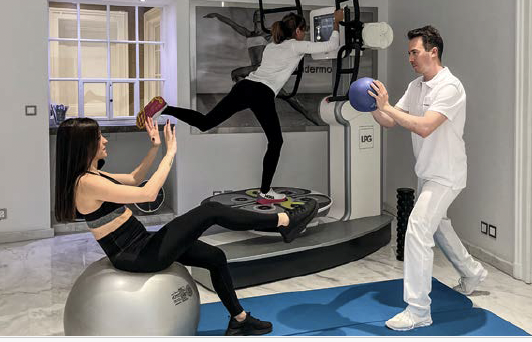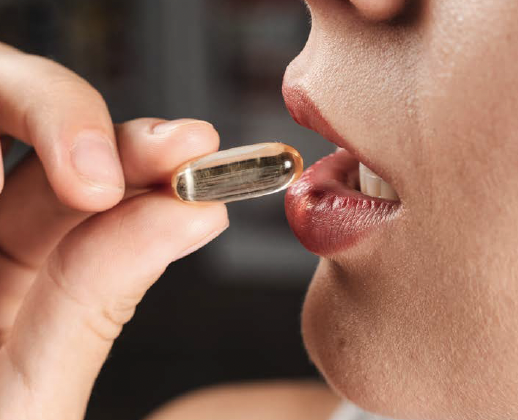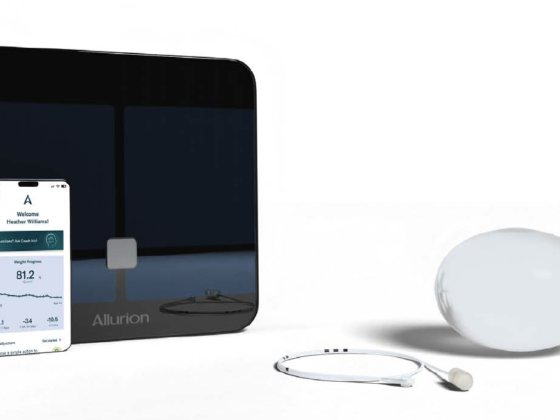Dr Isabelle Meurgey et Dr Jean-François Bézot
“Your stomach needs to be happy” François Rabelais.
“Doctor, can you do something for my stomach ache? I’ve seen several specialists who have examined my intestines and tell me there’s nothing wrong, everything’s normal! But I’m still in pain and I know I’m not imagining it!”
 As functional doctors, we regularly hear this complaint from patients. To resolve this problem – whose most common symptoms are pain and bloating, acid reflux, digestive issues (diarrhoea, constipation or both), chronic fatigue, sugar cravings, unex-plained weight gain, skin issues (eczema, acne), headaches, joint pain and mood swings – we have to explore the way in which our patients’ intestines work, as opposed to looking for a specific illness.
As functional doctors, we regularly hear this complaint from patients. To resolve this problem – whose most common symptoms are pain and bloating, acid reflux, digestive issues (diarrhoea, constipation or both), chronic fatigue, sugar cravings, unex-plained weight gain, skin issues (eczema, acne), headaches, joint pain and mood swings – we have to explore the way in which our patients’ intestines work, as opposed to looking for a specific illness.
We look to see if the small intestine’s permeability is abnormal and/or if there are any problems with the intestinal flora. The small intestine is located between the stomach and the colon and is seven metres long. Its mucous membrane acts as a barrier between what is outside and what is inside, and it also allows nutrients to be absorbed into the body.
When the intestine is permeable, it no longer acts as a filter and allows badly digested molecules or bacteria to pass through, as the cells are no longer joined together and move apart. Intestinal hyperpermeability is a key trigger for inflammatory reactions in the body. Porous intestine syndrome should not be taken lightly. It is very common in our society because we are exposed to junk food and all kinds of chemical and physical disruptors. Treating it allows us to reduce low grade inflammation in the body, which is a breeding ground for many pathologies, whether metabolic, degenerative or auto-immune.
Similarly, an imbalance in the intestinal flora is associated with several illnesses: chronic inflammatory disease, obesity, type 2 diabetes, asthma, allergies, autoimmune disease, neuro-psychiatric disorders.The diagnosis of these two problems requires further examination.
To detect permeability in the intestine, we look for any possible food intolerances that might lead us to an immunity issue. We also carry out a zonulin blood or faecal test, as high zonulin levels mean there is a problem. Next, a straightforward urine test for organic metabolites is a key examination. It shows us what type of flora is involved in the dysfunction, i.e. whether we are dealing with fermentation flora (fungal proliferation like candida) or putrefaction flora (bacterial proliferation).
In order to combat intestinal permeability, we need to change the patient’s diet.
It is a good idea to restrict gluten consumption by eating more We look to see if the small intestine’s permeability is abnormal and/or if there are any problems with the intestinal flora. The small intestine is located between the stomach and the colon and is seven metres long. Its mucous membrane acts as a barrier between what is outside and what is inside, and it also allows nutrients to be absorbed into the body. When the intestine is permeable, it no longer acts as a filter and allows badly digested molecules or bacteria to pass through, as the cells are no longer joined together and move apart. Intestinal hyperpermeability is a key trigger for inflammatory reactions in the body.
Porous intestine syndrome should not be taken lightly.
It is very common in our society because we are exposed to junk food and all kinds of chemical and physical disruptors. Treating it allows us to reduce low grade inflammation in the body, which is a breeding ground for many pathologies, whether metabolic, degenerative or auto-immune. Similarly, an imbalance in the intestinal flora is associated with several illnesses: chronic inflammatory disease, obesity, type 2 diabetes, asthma, allergies, autoimmune disease, neuro-psychiatric disorders.
The diagnosis of these two problems requires further examination.
To detect permeability in the intestine, we look for any pos-sible food intolerances that might lead us to an immunity issue. We also carry out a zonulin blood or faecal test, as high zonulin levels mean there is a problem.Next, a straightforward urine test for organic metabolites is a key examination. It shows us what type of flora is involved in the dysfunction, i.e. whether we are dealing with fermentation flora (fungal proliferation like candida) or putrefaction flora (bacterial proliferation). In order to combat intestinal permeability, we need to change the patient’s diet.
It is a good idea to restrict gluten consumption by eating more cereals such as einkorn, Khorasan wheat and buckwheat, and avoiding cow’s milk products. The diet should be rich in certain types of fibre which, when they ferment, produce short-chain fatty acids such as butyric acid, which promotes the synthesis of friendly bacteria thanks to its prebiotic effect. These types of fibre can be found in fruit, vegetables, nuts, coffee, wholegrain cereals, pulses, lacto-fermented foods (sauerkraut, gherkins, kimchi). Proper hydration with plenty of magnesium-rich mineral water or filtered water, soup and green tea is also a vital element, thanks to its anti-inflammatory action. Depending on the results of the organic metabolite analysis, anti-fungal medicine might be prescribed, along with essential oils and food supplements, which should be taken for three months or more. These treatments are accompanied by a prescription of probiotics such as Bifidobacterium and saccharomyces, glutamine and omega 3 fatty acids.
 Dr Isabelle Meurgey & Dr Jean-François Bézot
Dr Isabelle Meurgey & Dr Jean-François Bézot
Docteur Isabelle Meurgey:Doctor of anti-aging and cosmetic medicine. Graduate of Rouen medical faculty. Specialist in preventative and performance medicine since 1997. Permanent member of the French Society of Aesthetic Medicine. Diplomas in Micronutrition, Auriculotherapy, Hypnosis.
Plus d’informations : docteurisabellemeurgey.com
Docteur Jean-François Bézot: Medical biologist. Pharmaceutical doctor, Paris Pharmaceutical Faculty. Former house pharmacist in the Paris Hospitals. Has specialised in anti-aging biology and functional proteomics since 1988. Permanent member of the French Society of Anti-Aging Medicine. International conference speaker. In charge of the university course in Anti-Aging Medicine (Paris Créteil university).
Plus d’informations : biopredix.com













